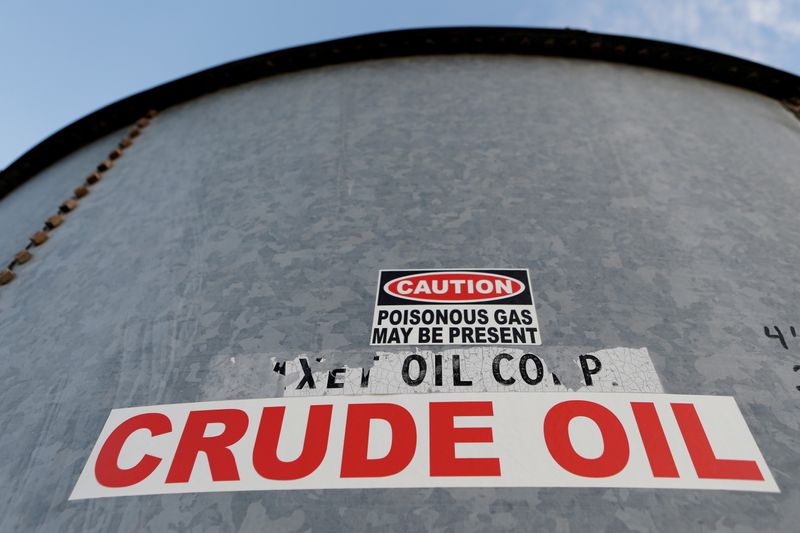By Laila Kearney
NEW YORK (Reuters) - Oil slumped $5 a barrel on Monday, closing out its worst day since March, after an OPEC+ agreement to boost output stoked fears of a surplus just as rising COVID-19 infections once again threaten demand.
Crude oil's year-long recovery has stalled out over the last two weeks due to the prospect of new supply undermining the case for higher prices. With the Delta variant of the coronavirus spreading worldwide - fuelling a 70% rise in U.S. infections last week - funds bailed out of long positions on Monday across multiple risk asset groups, including stocks and the dollar. (Graphic on U.S. cases) https://graphics.reuters.com/HEALTH-CORONAVIRUS/USA-TRENDS/dgkvlgkrkpb
It is still unclear how the variant will affect oil demand. Consumption in the United States, the world's largest consumer of fuel, has steadily strengthened in recent weeks, but India, the third-biggest importer, has cut back imports due to oversupply and fears of reduced demand.
"The market is very fixated on the potential for the Delta variant exploding," said Phil Flynn, senior analyst at Price Futures Group in Chicago. "Because of that, we're getting a run on the bank."
Brent crude settled at $68.62 a barrel, losing $4.97, or 6.8%. U.S. oil futures for August delivery, which expires on Tuesday, settled at $66.42, down $5.39, or 7.5%. The September U.S. crude oil futures contract settled at $66.35, down $5.21.
The Organization of the Petroleum Exporting Countries and their allies, known as OPEC+, reached a compromise on Sunday to increase oil supply from August to cool prices, which had hit their highest level this month in more than two years.
"We still face a significant deficit in terms of supply versus demand, but for now, the additional barrels are seen as enough to deflate and kill the recent rally," said John Kilduff, a partner at Again Capital in New York.
Given heavier trade volumes - with Brent futures trading 167% of the last session - it appeared funds were selling off, Kilduff said. "It absolutely has the look of a speculative liquidation here."
Some major banks have argued the market will continue to rally, with Goldman Sachs (NYSE:GS) reiterating on Monday that it sees more upside. It said the OPEC agreement was in line with its view that producers "should focus on maintaining a tight physical market all the while guiding for higher future capacity and disincentivising competing investments."
However, the OPEC deal removes more of the supply curbs that have been a cornerstone of the market for a year. At present, OPEC+ is keeping about 5.8 million crude barrels per day out of the market, a figure that will drop by 2 million bpd by year-end.

"Longer term, free and additional production capacities from OPEC+ countries are the key reason why we see oil moving lower again," said Julius Baer analyst Carsten Menke.
A popular spread trade in the oil market - between the first two December futures contracts, December 2021 and December 2022 - narrowed to the smallest since June 1. A narrowing spread indicates that traders expect supplies to rise by the end of 2021.